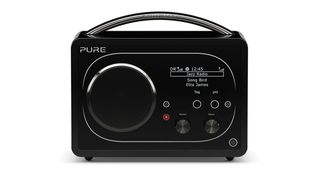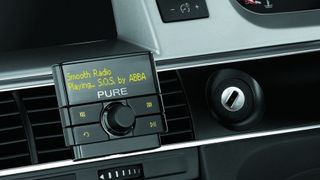Why DAB radio in the UK is broken, and how to fix it
The sound quality of DAB radio is awful and the system needs a major overhaul

DAB radio in the UK is badly broken and needs fixing. That's right, fixing, and not replacing with internet streaming. Here's why.
Firstly, let's be clear about one thing - the real challenge isn't coverage, even if that does need improving. That's a well understood issue and the solution is obvious enough.
Nope, the main problem is bandwidth. And it's an issue that came up once again today because Norway has just announced plans to kill FM and switch everything to digital by 2017.
If the UK did the same thing without making changes... well let's just say that wouldn't be a good idea.
Why DAB doesn't 'work' in the UK
Did you know, for instance, that many DAB radio stations in the UK are broadcast at just 64kbps mono using the MP2 codec? Do not adjust your screen that really is just 64kbps. That really is mono not stereo. That really is MP2 and not MP3.
To put that into context, MP2 is a less efficient codec than MP3, so that 64kbps figure is more like 48kbps in MP3. And that, TechRadar reader, is actually offensive.
Opinions vary on what makes for decent music quality in the MP3 codec. That's especially true if the context is in-car radio where background noise is prevalent.
Get daily insight, inspiration and deals in your inbox
Get the hottest deals available in your inbox plus news, reviews, opinion, analysis and more from the TechRadar team.
But we'll come back to why in-car DAB matters so much and why it means streaming isn't a viable alternative for the foreseeable future.

The sound of music
"And remember, those are all MP2 bitrates. Even BBC Radio 3 is scraping the barrel for tolerable sound quality."
Anyway, the tolerable minimum for most people who remotely care about sound quality tends to be in the 128 to 192kbps range for the MP3 codec. In other words, far, far more than many current DAB stations.
Actual bitrates will vary depending on where you are in the country. But stations that broadcast at 64kbps - at least from some transmitters - include Absolute Radio 80s, Amazing Radio, BBC Radio 5 Live, Jazz FM, Rainbow Radio and many more.
All the rest broadcast at 80kbps to 128kbps with a single, solitary exception, namely BBC Radio 3 which is 160kbps to 190kbps. And remember, those are all MP2 bitrates. Even Radio 3 is scraping the barrel for tolerable sound quality.
Sadly, it hasn't always been this way. DAB bitrates in the UK have actually been falling. It's ironic really. While screen technology races into a bold new 4K ultra HD age, DAB radio is plumbing the depths and pushing the limits of audio awfulness.
How, then, have we found ourselves in this position? Wasn't DAB meant to enable both far superior sound quality and many more stations?
Bandwidth brainache
Like we said, the problem is bandwidth. The best way to think about DAB is as a single data stream carrying all available stations. And the single data stream has a fixed data rate.
For the sake of argument, imagine that data rate in 1Mbps. All your radio stations have to fit inside that 1Mbps budget. With, say, four stations, you have a healthy 256kbps per channel. Nice.
But every time you add a station, something somewhere has to give. Immediately, you realise DAB is fundamentally at conflict with itself. It's supposed to offer better quality and more stations, but the more it does the latter, the less it can deliver the former.
Early DAB adopters may even remember how good the technology was at launch. Some stations were broadcast at 256kbps back when it was essentially a test technology for the BBC. But as stations were added, bitrates fell off and quality went south.
Of course, you may argue that none of this matters. Simply use streaming data over the internet and dump DAB. Simple.
And that's actually not a bad idea for most people in a home or office context – anywhere you can have an internet connection delivered by a landline.
Technology and cars. Increasingly the twain shall meet. Which is handy, because Jeremy (Twitter) is addicted to both. Long-time tech journalist, former editor of iCar magazine and incumbent car guru for T3 magazine, Jeremy reckons in-car technology is about to go thermonuclear. No, not exploding cars. That would be silly. And dangerous. But rather an explosive period of unprecedented innovation. Enjoy the ride.
Most Popular

